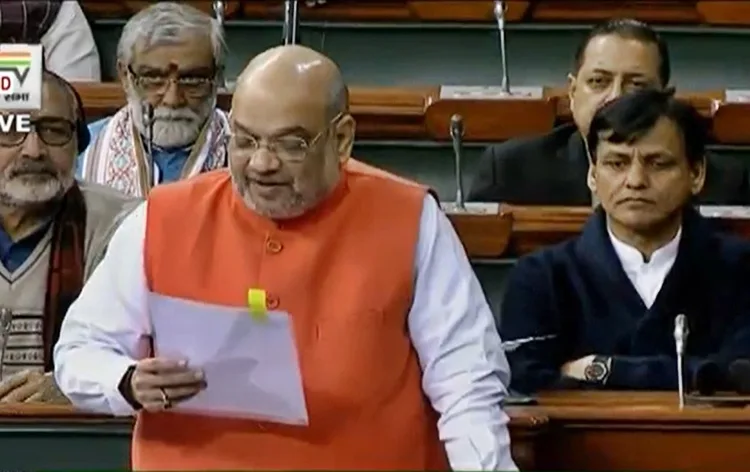
Agencies / NEW DELHI
Union Home Minister Amit Shah has said that the Citizenship Amendment Bill, 2019 is not against minorities and does not violate Article 14 of the constitution.
The Bill was introduced in Lok Sabha after the division of votes in the House. 293 members voted in favour of introducing the bill while 82 voted against the move.
Earlier, Home minister Amit Shah introduced the Citizenship Amendment Bill, 2019 in the House amidst uproar by the opposition members. The legislation is intended to amend the existing law in order to grant an exemption to illegal migrants in selected categories.
Congress, TMC and DMK members opposed the introduction of the Bill in the House. Congress leader Adhir Ranjan Chowdhury said it is regressive and violates Article 14 of the constitution.
RSP leader N K Premchandran also opposed the Bill saying it violates the basic feature of the Constitution. Prof Saugata Roy of TMC also opposed Bill’s introduction.
Talking to media outside Parliament House, Parliamentary Affairs Minister Pralhad Joshi said that the Citizenship Amendment Bill, 2019 is in the interests of the Northeastern States and the country. He expressed confidence that the bill will get the nod from both the houses of the Parliament.
Salient features of the Citizen Amendment Bill
The bill seeks to amend the Citizenship Act, 1955 to make illegal migrants of six communities from Afghanistan, Bangladesh and Pakistan eligible for Indian citizenship. The communities are Hindus, Sikhs, Buddhists, Jains, Parsis and Christians. The legislation relaxes the 11-year criteria for citizenship to six years for refugees belonging to these six religions.
The Bill also proposes to give immunity to such refugees facing legal cases after being found illegal migrants. The amendment will not be applicable to the tribal areas of Assam, Meghalaya, Mizoram or Tripura as included in the Sixth Schedule to the Constitution and in the areas covered under the Inner Line Permit (ILP).
The ILP regime is applicable in Arunachal Pradesh, Nagaland and Mizoram. The bill was passed by the last Lok Sabha but it could not be taken up in the Rajya Sabha.
